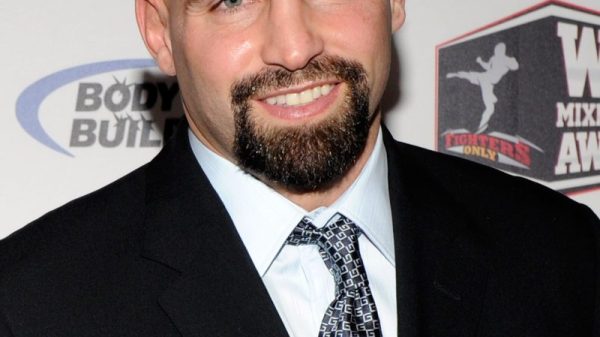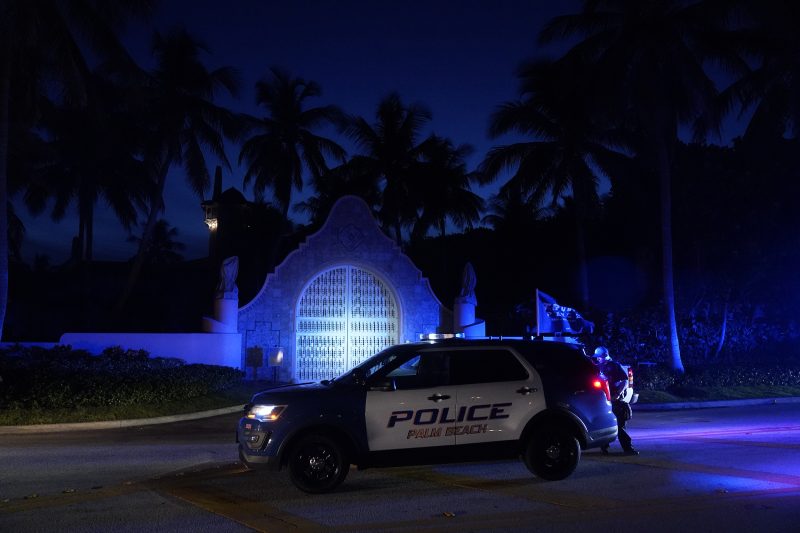A bit before 6 p.m. Thursday, the historic news broke: Former president Donald Trump had been indicted by a grand jury in Manhattan.
As you have no doubt heard by now, this development is without precedent. Until now, no former president has faced criminal indictment, much less one who had already announced his candidacy to regain presidency. It is therefore natural that people will have questions about the scenario and its implications.
Below, we will try to answer them.
Getting off to an unhelpful start: We don’t actually know. To explain why, it’s useful to quickly explain how the charges originated.
Alvin Bragg is the district attorney for New York County, N.Y., more commonly known as Manhattan. His office empaneled a grand jury to consider charges against Trump. Over several months, the district attorney’s office presented evidence and testimony in support of charges and, on at least one occasion, testimony from someone skeptical of criminal culpability.
A grand jury does not need to conclude that guilt was proved beyond a reasonable doubt to file charges; “beyond a reasonable doubt” is the standard for conviction by a jury. The grand jury also does not need to be unanimous in its decision to indict. If a majority of the 23 members think charges should be filed, they are.
This entire process, though, is kept under seal — including the indictment itself. There have been leaks to reporters that give us a sense of what the charges most likely include, but until they are unsealed at Trump’s arraignment next week (see below), we’re mostly speculating.
They are likely to be related to internal bookkeeping documents at the Trump Organization. CNN’s John Miller, a former official with the New York Police Department, reported Thursday night that the charges are likely to entail “34 counts of falsification of business records.”
This may not be what you had come to believe. Much of the conversation about the indictment has centered on the payment of $130,000 to adult-film actress Stormy Daniels shortly before the 2016 election to keep her from detailing an alleged affair with Trump. That’s been the focus in part because it is a likely ancillary factor and because it is more interesting to talk about than falsified business records.
In essence, the charges are believed to center on the allegedly intentional misrepresentation of Trump Organization business records as the company shifted tens of thousands of dollars to Trump’s then-personal attorney Michael Cohen to repay him for fronting the money to Daniels. All parties agree this happened: Cohen paid Daniels the money and then got paid by the Trump Organization. But if the company intentionally created fake business records to cover up that repayment, it’s a misdemeanor.
Trump is likely to face felony charges. If the falsification of business records was aimed at hiding another crime, then the charge is elevated in severity. It’s not clear what the specific other crime might be in this case, although New York does have a law making it illegal to engage in a “conspiracy to promote or prevent election,” which might apply to the hush money paid to Daniels.
The alleged criminal act that elevates the falsification charge also might focus on a similar payment made to former Playboy model Karen McDougal, who alleged that she also had an affair with Trump. She was paid off by the parent company of the National Enquirer, American Media Inc. (AMI), in alleged consultation with Trump and Cohen.
Cohen was repaid in chunks over the course of 2017, with some money coming from the Trump Organization and some from Trump’s personal account. The payments from the company followed Cohen’s submission of an invoice asserting that he was being paid as part of a “retainer agreement” for services he had performed for the company. If these and related records are considered to have been falsified — and if Trump is deemed to have intentionally falsified them — it is likely how those 30-plus counts were identified.
In general, no. The issue here is that the payments to Daniels and McDougal almost certainly were intended to influence the outcome of the 2016 election. Campaign-finance laws govern how money is spent to influence an election. People working for campaigns cannot spend unlimited, unreported money outside the campaign, for example, nor can businesses spend money directly.
The reasoning is simple: There’s no point in having limits on fundraising and spending if a candidate could simply ask a friend to spend hundreds of thousands of dollars on her behalf. Cohen was working with Trump’s campaign, so he could not legally spend $130,000 of his money to help the campaign without reporting it.
AMI and Cohen agreed to cooperate with federal investigators when news of the hush-money payments broke, and each indicated that its payment or his payment was intended to influence the election. Cohen, who pleaded guilty to campaign finance charges related to each payment, has implicated Trump as being involved in the decision to make the payments. He has at least one recording in which he and Trump discuss the campaign and the payment to McDougal.
Trump and his allies have repeatedly pointed to documents released in early 2018 as exculpatory. One is a letter from attorneys for Cohen denying that he aimed to influence the election. Another is a statement from Daniels in the same period denying that she had a relationship with Trump.
Of course, that latter statement was the point of the $130,000: The money was meant to keep quiet the alleged (albeit documented in 2011) affair with Trump. And in early 2018, Cohen, too, was still in his denial phase. Then still Trump’s personal attorney, he fought an uphill legal battle to protect his documents and defend his client.
A few months after those documents were created, both Cohen and Daniels admitted their roles in the coverup.
Trump has denied the affair.
Normally, the statute of limitations extends only five years, so criminal acts that occurred in 2017 would not count.
However, New York has a stipulation that another five years can be added to the statute of limitations if “the defendant was continuously outside this state” during the first five years. As president from 2017 to January 2021, Trump certainly was.
It depends on what you consider “common.” They are not unprecedented, however.
This month, the legal website Just Security published a document detailing a number of other occasions on which similar charges were filed: that is, falsification of business records elevated to a felony. They include a corrections officer accused of filling out a false report to cover up an assault and a former administrator at New York University being accused of trying to hide multimillion-dollar fraud.
Yes, in December, but those charges involved different allegations.
New York Post court reporter Ben Feuerherd was in the Manhattan courthouse on Thursday afternoon when employees of the court arrived at the clerk’s office just as it was closing. He described what happened next in a thread on Twitter.
Soon before 5 pm two men and woman walked behind a desk at the Manhattan criminal court clerk’s office to where indictments are filed.
The office then closed and clerk’s office workers abruptly told me and several other reporters to leave.
— Ben Feuerherd (@benfeuerherd) March 30, 2023
Trump is expected to be arraigned in Manhattan on Tuesday. At that hearing, Trump will appear before a judge and hear the charges against him. It will certainly be a circus. There’s no indication, though, that he will appear unwillingly. Trump’s lawyers have indicated that they are working with the district attorney to facilitate his appearance.
Discussion of “extradition” from his home at Mar-a-Lago is mostly political. Florida Gov. Ron DeSantis (R) is likely to seek the 2024 Republican nomination against Trump. So, as the grand jury was considering charges, Trump allies demanded that DeSantis take a public position against extraditing Trump, should charges be filed.
Once they were, DeSantis released a statement insisting that he would oppose extradition, a transparent effort to endear himself to Trump supporters. After all, the Constitution — written in large part to encourage states to work in concert with one another — mandates that charges filed in one state result in the removal of the accused from another state.
Trump ally Alan Dershowitz argued on Fox News on Thursday night that Manhattan jurors would be hopelessly slanted against Trump and that his trial should instead be moved to nearby (and more Republican-friendly) Staten Island.
It is true that Manhattan has been hostile territory for Trump since he ran for office, to the extent that he decamped permanently to Mar-a-Lago. But it is clear that this trial will face the prospect of a jury pool intimately familiar with the defendant wherever he goes. Given that Manhattan is home to 1.6 million people — and tens of thousands of Trump voters in 2020 — it seems likely that a pool of appropriate jurors could be found.
Trump faces multiple other legal threats: a probe by the district attorney of Fulton County, Ga., related to his efforts to overturn the 2020 presidential election result in Georgia; a federal investigation into both the election response and his hoarding of documents with classification markings; and a state probe in New York.
In each case, investigators can be presumed to be acting largely under the influence of the evidence. But there’s no question that those seeking charges are in most cases subject to political influence; it is no small thing to bring an indictment against a former president, much less one who has a track record of stoking a violent response when he has felt threatened.
That Bragg has established precedent by obtaining an indictment lowers any political cost of additional indictments, should that have been a factor for prosecutors.
Sure. The Constitution draws only a few specific limits on presidential candidacies: You have to be 35 or older, a “natural born” U.S. citizen and have lived in the country for 14 years. Trump meets all of those standards.
What’s more, we’ve seen people run for president from jail in the past. There was Eugene V. Debs in 1920. More recently, a guy named Keith Judd got 40 percent of the 2012 Democratic presidential primary vote in West Virginia despite being in federal prison.
That Trump is running now, having announced last November, is probably in part a function of his concern about indictments. He and his allies quickly moved to frame the indictment as an effort to block his political path — an argument that works only (to the extent that it does) because he is already a declared candidate.
(If you’re curious, Slate answered a related question: Yes, Trump would likely still have Secret Service protection if sent to prison.)
This is a complicated question that we’ve addressed in a separate article. In short: theoretically, but it’s hard to see how the indictment helps.
They are. For all of the protests from Trump and his allies that his indictment marks some descent from democracy, the United States’ peer democracies have often issued indictments against former officials for alleged criminal behavior.
In recent years, former leaders of France, Germany, Italy, Israel, South Korea, Portugal and Croatia have faced charges, to name a few. Such leaders, like Trump, often also try to frame the indictments as politically motivated.
One difference is that American politics, unlike in parliamentary systems, puts primacy on the candidate and not the party. There’s more allegiance to Trump than there is to the Republican Party. In systems with prime ministers, voters are only indirectly casting ballots for specific politicians. That, too, lowers the political cost of holding them to account.
One of the responses to the indictment has been to disparage or dismiss Bragg as being “Soros-backed,” a reference to the financier George Soros, who invests heavily in Democratic politics.
In his election campaign, Bragg was backed by an independent expenditure from an organization that had just received a large contribution from Soros. He also raised millions of dollars of his own from other donors, not including Soros.
The “Soros-backed” charge, as we explained this month, is less about the ties between Bragg and Soros than it is an effort to tie the district attorney to a figure hated by the right. It’s a shorthand pejorative meant to cast Bragg as unacceptably left-wing by virtue of this second-degree connection.
And, of course, it often carries unquestionable antisemitic undertones.
This, too, has been a common attack from Trump and his allies: Why is Bragg focused on this instead of crime in Manhattan? Again, the complaint is mostly political, a way of suggesting that Bragg is going out of his way to take down Trump while his Democrat-run!! city is plagued with crime.
As “Law and Order” fans know, it is not the district attorney’s role to make arrests. But even stipulating that, crime is down in Manhattan this year.
Yes. Ulysses S. Grant in 1872, for speeding in D.C.
He didn’t show up to his hearing.



























